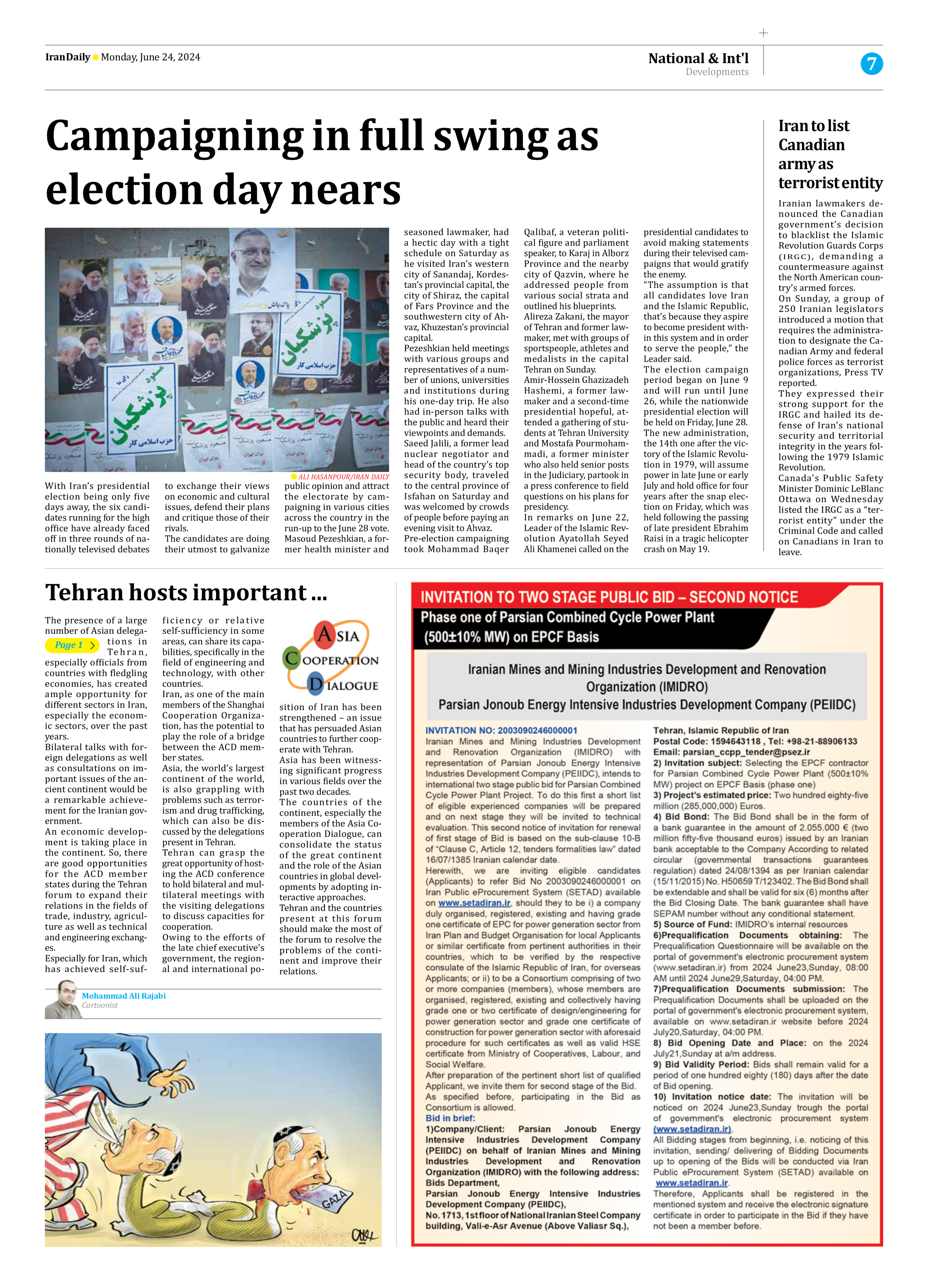
Campaigning in full swing as election day nears
With Iran’s presidential election being only five days away, the six candidates running for the high office have already faced off in three rounds of nationally televised debates to exchange their views on economic and cultural issues, defend their plans and critique those of their rivals.
The candidates are doing their utmost to galvanize public opinion and attract the electorate by campaigning in various cities across the country in the run-up to the June 28 vote.
Masoud Pezeshkian, a former health minister and seasoned lawmaker, had a hectic day with a tight schedule on Saturday as he visited Iran’s western city of Sanandaj, Kordestan’s provincial capital, the city of Shiraz, the capital of Fars Province and the southwestern city of Ahvaz, Khuzestan’s provincial capital.
Pezeshkian held meetings with various groups and representatives of a number of unions, universities and institutions during his one-day trip. He also had in-person talks with the public and heard their viewpoints and demands.
Saeed Jalili, a former lead nuclear negotiator and head of the country’s top security body, traveled to the central province of Isfahan on Saturday and was welcomed by crowds of people before paying an evening visit to Ahvaz.
Pre-election campaigning took Mohammad Baqer Qalibaf, a veteran political figure and parliament speaker, to Karaj in Alborz Province and the nearby city of Qazvin, where he addressed people from various social strata and outlined his blueprints.
Alireza Zakani, the mayor of Tehran and former lawmaker, met with groups of sportspeople, athletes and medalists in the capital Tehran on Sunday.
Amir-Hossein Ghazizadeh Hashemi, a former lawmaker and a second-time presidential hopeful, attended a gathering of students at Tehran University and Mostafa Pourmohammadi, a former minister who also held senior posts in the Judiciary, partook in a press conference to field questions on his plans for presidency.
In remarks on June 22, Leader of the Islamic Revolution Ayatollah Seyed Ali Khamenei called on the presidential candidates to avoid making statements during their televised campaigns that would gratify the enemy.
“The assumption is that all candidates love Iran and the Islamic Republic, that’s because they aspire to become president within this system and in order to serve the people,” the Leader said.
The election campaign period began on June 9 and will run until June 26, while the nationwide presidential election will be held on Friday, June 28.
The new administration, the 14th one after the victory of the Islamic Revolution in 1979, will assume power in late June or early July and hold office for four years after the snap election on Friday, which was held following the passing of late president Ebrahim Raisi in a tragic helicopter crash on May 19.







